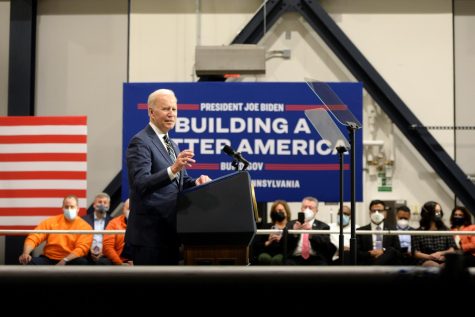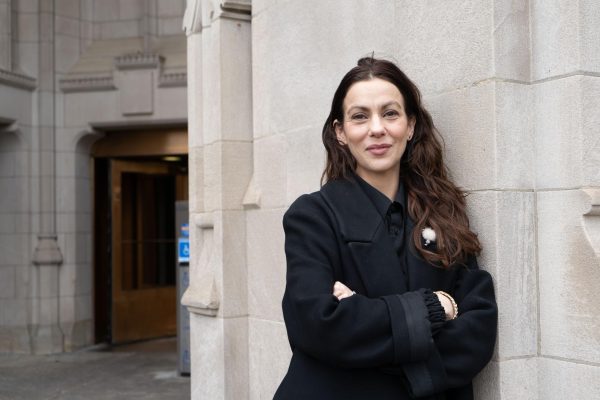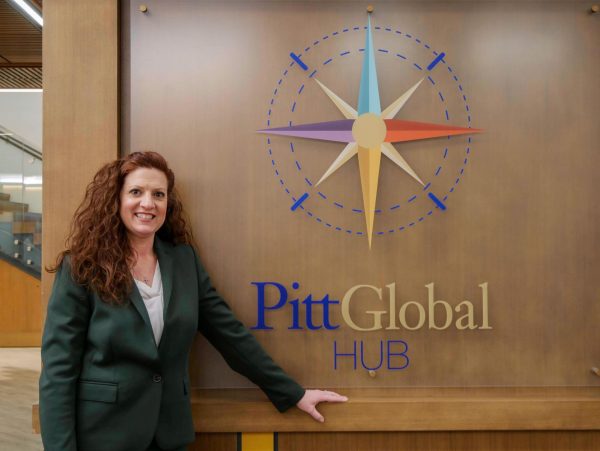Schaff: New consumer bureau vows to defend us small fries
January 17, 2012
The streets of Oakland are sprawling with little guys. The streets of Oakland are sprawling with little guys.
No, not physically little — Pitt manages to compete in D-I basketball after all. Financially little.
It’s true: Most people like me who show up to class and call themselves University students are thousands of times smaller than many hedge fund managers and corporate CEOs, that is, if we’re talking net worth or annual income.
Surely, being little in this way allows us to worry less about kidnappers trying to squeeze us of ransom money or distant relatives extending ulterior-motive-derived kindness. But all too often our smallness confers unsavory vulnerability, especially when it comes to having to make consumer decisions. For example, even a part-time paycheck from Starbucks won’t allow a college student to pay for both tuition and a lawyer to confirm that his credit-card issuer isn’t scamming him. At least when it comes to traversing an enormous marketplace full of carefully set booby-traps, little guys need big help. And that’s why we students need to appreciate — and rejoice in — the sheer magnitude of what’s now happening in Washington. We also need to tell our congressmen to make sure it doesn’t stop happening.
In the colorful 100-year history of American progressive reform that brought us child labor laws, Social Security, Medicare and the Affordable Care Act, never has there existed a fully functioning federal agency whose sole purpose was to look after average consumers. Some governmental bodies have come close — the Federal Reserve, Federal Deposit Insurance Corporation and the Securities and Exchange Commission are typically charged with policing some financial institutions’ open-market behavior, thereby providing a layer of protection for small borrowers and lenders (just don’t Google “SEC failure” with “Bernie Madoff”). On the judicial side, class-action lawsuits have dished out consumer justice over the years.
But until two weeks ago, no substantial section of executive-branch focus was allocated to consumer protection. Now, thanks to President Barack Obama’s welcome mobilization of some Oval Office balls — he made a recess appointment during the holidays so as to bypass the intransigent, evidently consumer-unfriendly Republican congressional caucus — the times have officially changed. America’s first Consumer Financial Protection Bureau is now operational, and its freshly minted chairman, Richard Cordray, is ready to play some serious defense (on the part of the little guy, of course).
The 2010 Dodd-Frank Act — which, although heavily contested by regulation-averse special interests, for now is still on the books — charges the CFPB with “implementing the Federal consumer financial laws through rules, orders, guidance, interpretations, statements of policy, examinations and enforcement actions.” To enforce and supplement enforcement of such laws, the CFPB is supposed to create several offices, including an office of research to analyze market behavior, especially the development of financial products created to mislead consumers, an office of fair lending and equal opportunity and, my personal favorite, an office of financial education to educate consumers on, among other things, how to develop long-term savings strategies. After his nomination, Cordray announced that his first priority would be to rein in the non-bank financial institutions often skipped by current regulators, according to The New York Times.
A bureau like the CFPB should have been here all along. A profit-valuing, market-based economy with a few resourceful producers, many resource-less consumers, imperfect information and what I like to call the weaknesses of the human brain — i.e., manipulable from the optimal-decision-making ideal — inevitably leads to an inequality of power, providing the opportunity for wide-scale abuse of consumers (see: subprime mortgage crisis). A truly democratic system is capable of offsetting the effects of such inequality if the masses (consumers) recognize their bad hand and proceed to tailor their government such that it tips the balance back toward consumers. Such offsetting should be accomplished by regulation (sort of here), taxes that disincentivize bad market behavior (not really here), regulators who separate themselves from the industries they’re regulating and actually enforce the regulations (not here) and, importantly, government employees who advocate specifically for the consumer (definitely not here, until now).
Given the bureau’s fledgling status, it’s hard to say if the CFPB will turn out to be the balance-tipper our economy has needed. But it’s worth finding out.
That means hoping upcoming Republican attempts to appeal Cordray’s appointment fail, or at least fail to bring down the bureau altogether — an objective that any perceptive observer could identify as the opposition’s real goal.
So when it comes to what Pitt students should think about the bureau’s fate, here’s something to remember: Little people can have big passions.
Write Matt Schaff at [email protected].







